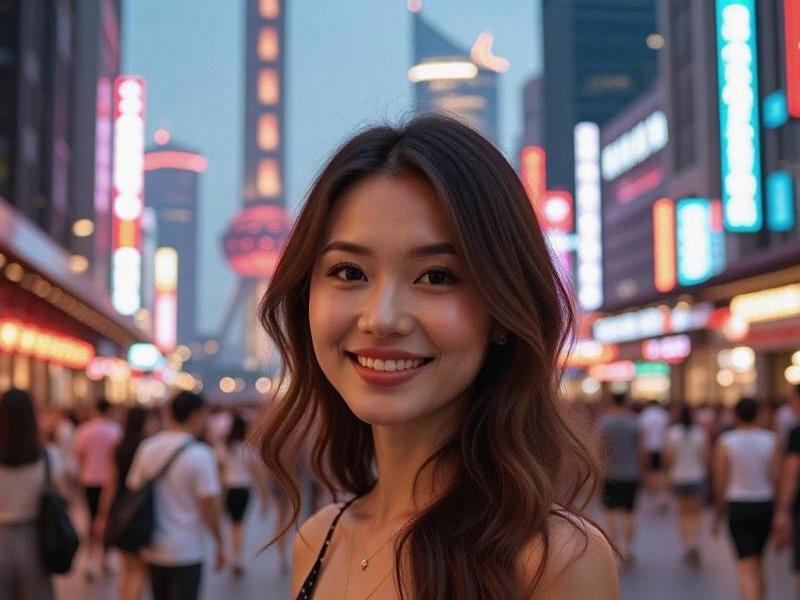This in-depth feature explores how Shanghai's women are redefining traditional femininity through technological innovation, entrepreneurial spirit, and cultural preservation in China's most cosmopolitan city.

The morning light filters through the skyscrapers of Lujiazui as 28-year-old AI engineer Li Jiawei adjusts her VR headset in a shared workspace, her manicured fingers flying across holographic keyboards. Across the Huangpu River in the French Concession, 45-year-old qipao designer Madame Zhang meticulously hand-stitches silk embroidery for her latest collection. These two women represent the fascinating duality of Shanghai's contemporary female identity - where cutting-edge technology and timeless tradition coexist in perfect harmony.
Shanghai's women have long been considered China's most sophisticated, but the definition of what makes a "Shanghai beauty" has undergone radical transformation in the past decade. According to the 2025 Shanghai Women's Development Report, the city now boasts:
• 43% of tech startup founders are female (compared to 29% in Beijing)
• 68% of luxury goods consumers are women making independent purchases
爱上海同城419 • The average age of first marriage has risen to 31.5 (from 27 in 2015)
• 52% of managerial positions in multinationals are held by local women
This professional revolution is most visible in Pudong's corporate towers. At e-commerce giant Alibaba's Shanghai headquarters, all-female development teams crteeaAI algorithms that power 60% of China's livestream shopping platforms. "Our 'Beauty Tech' division understands female consumers better because we are them," explains product lead Rachel Wang, whose team's facial recognition software can suggest makeup styles based on skin tone analysis.
上海龙凤419是哪里的 Yet tradition remains equally revered. In the quiet lanes of the former French Concession, boutique ateliers like "Silk Road Memories" preserve century-old tailoring techniques while catering to modern tastes. Third-generation seamstress Lin Xiaoyu has digitized her grandmother's embroidery patterns, creating an app that teaches traditional crafts to young professionals. "The new Shanghainese woman wants both - the efficiency of technology and the soul of heritage," Lin observes.
The fashion scene perfectly encapsulates this fusion. While international brands dominate Nanjing Road's luxury malls, local designers like Helen Lee incorporate Shanghainese elements into contemporary wear - think qipao-inspired dresses with smartphone pockets and wrinkle-resistant fabrics. Lee's latest collection features LED-embedded cheongsams that change patterns via app control, selling out within hours at Shanghai Fashion Week.
Education fuels this transformation. Shanghai's female college enrollment rate stands at 71%, with women constituting 65% of postgraduate students in STEM fields at top institutions like NYU Shanghai. The city's "Girls Who Code" initiative has trained over 10,000 young women in programming since 2020.
上海喝茶群vx
However, challenges persist. The "leftover women" stigma lingers despite growing pushback, with matchmaking agencies reporting that 38% of female clients over 35 hold advanced degrees. Social media amplifies unrealistic beauty standards even as body positivity gains traction - cosmetic procedure rates among white-collar workers remain 23% higher than the national average.
Cultural observers identify a distinctly Shanghainese approach to modern womanhood. As novelist Wei Hui notes: "Shanghai women have always been China's most pragmatic feminists - they'll debate gender theory over brunch, then negotiate a better salary by afternoon." This balanced perspective makes them uniquely positioned to navigate China's rapidly changing social landscape.
As Shanghai prepares to host the 2026 Global Women's Summit, the world watches how this dynamic city continues to redefine Asian femininity - proving that true elegance comes not from choosing between tradition and progress, but in mastering the art of having both.